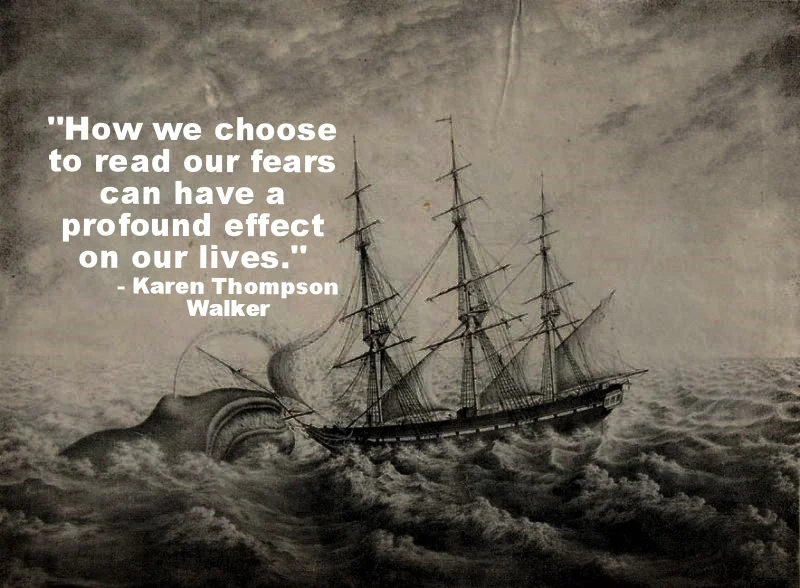It was after my freshman year in college at Maine Maritime Academy when I went on a Navy summer deployment to fulfill my NROTC commitment and scholarship. This deployment was a two week excursion on a 42' sailboat that a Lieutenant (LT) and six Cadets sailed from Newport, Rhode Island to Castine, Maine. I had sailed before with my family and had taken sailing for a Physical Education class in my first semester so you could say that I knew how to sail, but I had never experienced anything like what I did off the coast of Plymouth Rock, Massachusetts.
We had heard that the weather for the day was going to be bad, but we were on a schedule and needed to reach each destination for the day so we decided to chance it and head into the storm. We ended up in a HUGE storm that produced 10' to 12' waves and wind gusts up to I don't know how high. There was lightning all around and the LT made all of us go below except for one to assist him on deck. I hated being below because I couldn't see what was coming at me, so I decided to take option B – assist the LT on deck. Yes, I could see what was coming at me, but it was a whole lot of dark, rain, lightning, wind and huge waves. We were suited up in our rain gear and wore harnesses that had leads that we clipped in on the cable system on the boat in case we went overboard. I have to say that I was a bit fearful multiple times during that experience, but I learned to overcome that fear when my LT needed something done to ensure the whole team remained safe. It was dangerous thinking that the lightning could have hit us at any moment considering we had a huge metal mast sticking up. I was fearful to think what could happen, but I controlled the extent of that fear and how much that it would affect me and the decisions that I would have to make.
I watched a movie called "After Earth" with Will and Jaden Smith last night. The movie reminded me of the feelings that I felt on that sailing trip. Will Smith plays the part of Cypher, an amazing fighter against aliens that have invaded Earth. Cypher is so successful because the aliens could only see people if they are afraid. He has discovered how to do what they call "ghosting", which is ridding yourself of all fear. This allowed him to be invisible to the aliens. His son, Kitai, has not figured out how to do this, but through a challenging adventure that they go on, he has an opportunity to grow closer to his father than he ever had and really begin to understand what fear is. Cypher explains to him, "Fear is not real. The only place that fear can exist is in our thoughts of the future. It is a product of our imagination causing us to fear things that do not at present and may not ever exist." He goes on to say to his son, "Now do not misunderstand me. Danger is very real, but fear is a choice."
“I am not afraid of storms for I am learning how to sail my ship.”
As I reflect on the time I was in that sail boat in the storm and other situations where I have been fearful, I do believe the words of Will Smith to his son in this movie. I was fearful in that boat at times because I was thinking about what could happen. Once I determined not to allow my mind to take trips to those places, I actually enjoyed my experience. I believe that it is experiences like this that help us during situations with our families and in our work environment to not only get through, but to excel.
One area that I have read about a lot is the area of creativity. Harvard Business Review recently stated that you should make your people a little bit uncomfortable: "Fostering creativity is a priority for many companies, but there’s an often-overlooked strategy for doing it: creative discomfort." (HBR Management Tip of the Day 9/4/2015). This helps them break out of their normal thinking patterns and encourages them to think in new ways. They also stated that it is important not to cross the line in making them too uncomfortable or they may become fearful. Once that happens then their minds will begin to shut down creatively and will force them into either freeze or flight mode. I find it interesting that once fear happens, the creativity goes away. I don't think it has to if communication is conducted before a person is put into a potential fearful situation. I think this communication will reduce the person's thinking of what may happen in the near future and they will be able to endure riskier situations that may unleash creativity that they did not know they had before.
Dean Potter free soloing on El Capitan on a route he called Easy Rider.
Obviously, there is a line that you cannot go over, but I don't think enough people push over the edge or even get close to the edge of their fear level. Dean Potter, a famous free soloist (a rock climber that climbs with no ropes) who recently died said, "The common thread in my three arts is pushing into fear, exhaustion, beauty, and the unknown. I willingly expose myself to death-consequence situations in order to predictably enter hightened awareness." I think Dean probably was a bit extreme, but by putting ourselves in situations on the edge of our fear level, this will help us when we are in these types of situations that were not planned in order to make better decisions for our organizations and for our families.
In her TED Talk, Karen Thompson Walker talks about the Whale Ship Essex and how fear can steer your decision process in error....if you let it. She discusses and supports that fear is just our self making up a story – that we are both the authors and the readers. One point that she makes is that fear is both artistic and scientific, the challenge being that we need to steer our fear to help us look at the scientific side more to help us make decisions, and not let the artistic side take over which will lead us to bad decisions more often than not. My challenge to you this week is to try to be more self-aware of your fearful inner feelings and immediately reflect on them. Why are you having them? What are they telling you? Are the fearful feelings telling a story that is scientific or artistic? If the story is an artistic one, begin to try to think about the feelings in a different way and overcome them one step at a time.




